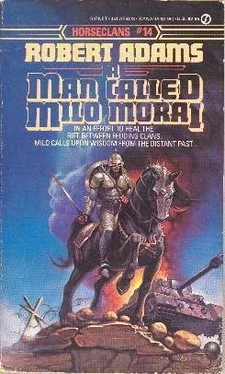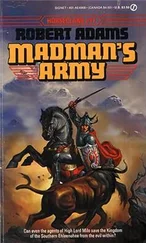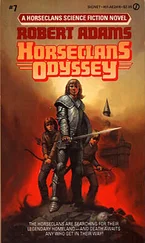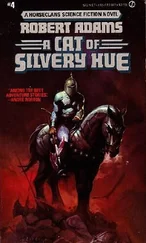Robert Adams - A Man Called Milo Morai
Здесь есть возможность читать онлайн «Robert Adams - A Man Called Milo Morai» весь текст электронной книги совершенно бесплатно (целиком полную версию без сокращений). В некоторых случаях можно слушать аудио, скачать через торрент в формате fb2 и присутствует краткое содержание. Жанр: Фантастика и фэнтези, на английском языке. Описание произведения, (предисловие) а так же отзывы посетителей доступны на портале библиотеки ЛибКат.
- Название:A Man Called Milo Morai
- Автор:
- Жанр:
- Год:неизвестен
- ISBN:нет данных
- Рейтинг книги:3 / 5. Голосов: 1
-
Избранное:Добавить в избранное
- Отзывы:
-
Ваша оценка:
- 60
- 1
- 2
- 3
- 4
- 5
A Man Called Milo Morai: краткое содержание, описание и аннотация
Предлагаем к чтению аннотацию, описание, краткое содержание или предисловие (зависит от того, что написал сам автор книги «A Man Called Milo Morai»). Если вы не нашли необходимую информацию о книге — напишите в комментариях, мы постараемся отыскать её.
A Man Called Milo Morai — читать онлайн бесплатно полную книгу (весь текст) целиком
Ниже представлен текст книги, разбитый по страницам. Система сохранения места последней прочитанной страницы, позволяет с удобством читать онлайн бесплатно книгу «A Man Called Milo Morai», без необходимости каждый раз заново искать на чём Вы остановились. Поставьте закладку, и сможете в любой момент перейти на страницу, на которой закончили чтение.
Интервал:
Закладка:
Robert Adams
A Man Called Milo Morai
This, the fourteenth volume of HORSECLANS, is dedicated to:
Mr. Gary Massey, gentleman-attorney;
Mr. Scott Wasmund, gentleman-CPA;
Dr. Bill Brown, gentleman-cardiologist;
Mr. Richard Evans, gentleman-editor;
Mr. Ed Hayes, gentleman-journalist;
Mr. Ken Kelly, gentleman-cover artist; and to
Mr. Bernhard Goetz, gentleman-at-arms.
Prologue
The day of hunting, trapping, seining and foraging for wild plants, fruits, nuts and tubers had gone well in this rich, not often hunted slice of the great prairie. Fillets of fish and thin slices of venison now had been added to others already in the process of curing over slow, smoky beds of fire scattered about the camp of the hunters.
All of the daylight hours, those who had not ridden forth with the hunting and foraging parties or fished the small river had been hard at the tasks of tending the fires and the meat and fish that hung above them, had scraped and stretched and salted and rolled the skins and hides, rendered fish offal for glue, and performed the countless other tasks necessary to maintain the camp and its temporary inhabitants—human, feline and equine.
Between chores, certain of the camp detail cared for and saw to the needs of an injured boy. His intemperate insubordination of the preceding night had resulted in his chief flinging him into the still-live coals of a large firepit —a regrettable but very necessary cost of survival in the often-harsh environment was instant and savage punishment for failure to obey leaders, for repeated instances of such undisciplined conduct might well one day cost lives, his own and many another also.
As Sacred Sun declined in the western sky, the parties began to return to the camp with the spoils of their forays on the countryside and waters. Having less distance to travel and being also blessed with the faster, easier road, the fishing party was the first back at the campsite, where they drew their small boats of hide and wood through the shallows and up upon the shelving beach before unloading their catches of assorted fish, then, with flashing knives, all set about the cleaning, scaling or skinning and filleting of the feebly flopping creatures. The larger of the fillets went to the racks above the smoky fires, while the smaller went into piles and pots for the evening meal.
The foragers were next to return, offloading hampers of assorted plant materials from led horses to be sorted, dried and repacked to bear back to the clans or used immediately for their own sustenance. Then this party divided, and while some saw to the horses or the sorting, others remounted and rode out to check lines of traps, snares, pits and logfalls.
The first of two hunting groups rode in with a spirited whooping, laden with no less than three good-sized deer —two of them ordinary whitetails, a buck and a big doe, but the third a rare and much-prized spotted buck with palmate antlers—a smallish wapiti buck, some near-dozen long-legged hares and an assortment of other small game and birds.
While still this first party of the hunters, with the more than enthusiastic assistance of those already in camp, were hard at the messy jobs of flaying and butchering, the sometime-foragers came back, having emptied arid reset traps or rebaited those they had found empty. They bore some cottontails, .squirrels, one big and three smaller raccoons, a black fox, a mink, a woodchuck, two skunks—one striped, one spotted—half a dozen muskrats and four thrashing feet of thick-bodied, now-headless watersnake which had been a chance acquisition of a muskrat trapper.
The lower edge of Sacred Sun was skirting very close to the western horizon and the pots and pans above the scattered cookfires were already beginning to emit fragrant steam before the second party of hunters was sighted across the grassy expanse that lay above the narrow, winding, flood-carven river valley in a wider portion of which lay the campsite.
So slowly did this party move that it seemed clear they must ride heavy-laden with game. But as th^y came closer, those gifted with the keenest sight could see that although there was game strapped to several horses, two others bore between them a makeshift litter, and at the tail of the party limped an injured horse—its head hung low, dried blood streaking its barrel, stripped of all gear and encumbrances save only a rawhide halter, bloody froth surrounding its distended nostrils and slowly dripping from muzzle and lips.
“Sun and Wind,” muttered Hunt Chief Tchuk Skaht to no one in particular, “I thought today’s hunting went too well to be true or to last. Wind grant that that’s not a Skaht in that litter, yonder … but that baldfaced redbay looks much like one of our herd. And if the horse was hurt, then what of its rider?”
As the column wound down the path from above and into camp, the form on the litter could be seen to lie un-moving, very, very still, its eyelids closed, its sun-browned hands folded across its chest. Tchuk’s heart plummeted to the depths of his felt and leather boots when he recognized the face—Myrah Skaht, daughter of his cousin, Chief Gaib Skaht; a pretty girl of only fourteen summers, a girl with the promise of becoming one of the best archers in her clan.
He walked heavily in the direction of the cleared space wherein returning parties usually offloaded, his mood as heavy and dragging as his steps. “It’s always the young,” he brooded silently to himself, “the best, the brightest, that hunting and raids and simple accidents cost us. At least six or eight boys and girls who likely will never contribute much to our clan, whose loss would have soon been clean forgot, but, no, we here lose Myrah … and probably her fine, well-trained hunting mare, as well, from the looks of it. Poor Gaib will be bitter for long and long, I fear me, with this painful loss of so fine and so promising a daughter; I hope that he doesn’t blame me for it.”
As the leader of the hunting party wearily dismounted from his stallion and set about removing saddle and gear from the mount, Tchuk came close and asked the question he had to ask.
“Did she die well, Uncle Milo? Our bard is certain to ask me … and her grieving father, too.”
Looking up from where he had bent to unbuckle the cinches of the hunting kak, the man thus addressed smiled and replied, “Be not so pessimistic, Tchuk Skaht. The unfortunate mare will probably have to be put down this evening, from the looks of her, but young Myrah was not hurt badly, only knocked giddy and shaken up. I had her put in a litter only because she seemed to have trouble sitting a horse, then I gave her a draft of sleep-root to spare her discomfort on the journey. She’s only asleep, you see, not dead.”
“What happened, Uncle Milo? No mere fall would have torn the mare up that way.”
While continuing to work, the man called Uncle Milo used their shared telepathy to answer the question. “We hunted this day that wide strip of forest over by the big river of which this one is a tributary, bagging six of the small straighthorns, among other beasts, this morning. After the nooning, we all fanned out to see what else we could add to our take for the day. Our first intimation of trouble was when we heard the mare’s screams.
“It would appear that Myrah arrowed a yearling pig, but for some reason, her loosing did not fly with her usual trueness and the wounded beastlet fled into an area of heavy brush with Myrah in full pursuit of it.”
Tchuk Skaht, an experienced and widely respected hunter, blanched. “Oh, no, a sow … or worse, a boar. And her without a spear.”
“Just so,” agreed Uncle Milo, adding, “In her pain and hysteria, I couldn’t get much out of the mind of the mare, so this is a reconstruction based on educated guesses and what I found when I got to the scene.
Читать дальшеИнтервал:
Закладка:
Похожие книги на «A Man Called Milo Morai»
Представляем Вашему вниманию похожие книги на «A Man Called Milo Morai» списком для выбора. Мы отобрали схожую по названию и смыслу литературу в надежде предоставить читателям больше вариантов отыскать новые, интересные, ещё непрочитанные произведения.
Обсуждение, отзывы о книге «A Man Called Milo Morai» и просто собственные мнения читателей. Оставьте ваши комментарии, напишите, что Вы думаете о произведении, его смысле или главных героях. Укажите что конкретно понравилось, а что нет, и почему Вы так считаете.












